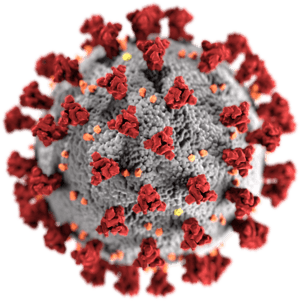Sarah Gilbert facts for kids
Quick facts for kids
Sarah Gilbert
|
|
|---|---|

Gilbert in 2021
|
|
| Born | April 1962 (age 63) Kettering, Northamptonshire, England
|
| Alma mater | University of East Anglia (BSc) University of Hull (PhD) |
| Known for | Vaccinology |
| Children | 3 |
| Awards | Albert Medal (2021) Princess of Asturias Award (2021) King Faisal Prize (2023) |
| Scientific career | |
| Fields | Vaccines |
| Institutions | University of Oxford Vaccitech Delta Biotechnology Leicester Biocentre Brewing Industry Research Foundation Christ Church, Oxford |
| Thesis | Studies on lipid accumulation and genetics of Rhodosporidium toruloides (1986) |
| Doctoral advisor | Colin Ratledge, Dr M. Keenan |
Dame Sarah Catherine Gilbert is a brilliant English vaccine scientist. She is a Professor of Vaccinology at the University of Oxford. She also helped start a company called Vaccitech.
Professor Gilbert is an expert in creating vaccines. These are special medicines that help your body fight off diseases. She focuses on vaccines for the flu and new viruses that can cause big outbreaks.
In 2011, she led the team that tested a new kind of flu vaccine. This vaccine was designed to protect against many types of flu.
In early 2020, she learned about a new illness in China. It was a strange kind of pneumonia in Wuhan. Within two weeks, her team at Oxford designed a vaccine for this new sickness. It later became known as COVID-19.
On December 30, 2020, the Oxford–AstraZeneca COVID-19 vaccine was approved for use in the UK. She helped develop this vaccine with the Oxford Vaccine Group. Over 3 billion doses of this vaccine were sent around the world.
Contents
Early Life and Education
Sarah Catherine Gilbert was born in Kettering, Northamptonshire, England. Her father worked for a shoemaking company. Her mother was a primary school teacher.
Sarah went to Kettering High School for Girls. There, she realized she wanted to work in medicine. She earned excellent grades in her exams.
In 1983, she graduated from the University of East Anglia (UEA). She earned a Bachelor of Science degree in Biological Sciences. While at UEA, she started playing the saxophone. She would practice in the woods so she wouldn't bother others.
She then went to the University of Hull for her PhD. She studied the genetics and biochemistry of a type of yeast. She earned her PhD in 1986.
Research and Career Highlights
After her PhD, Sarah Gilbert worked in different research jobs. She joined Delta Biotechnology in 1990. This company made medicines in Nottingham.
In 1994, she returned to university research at the University of Oxford. Her early work looked at how malaria parasites interact with the body. She became a university lecturer in 1999. In 2004, she became a Reader in Vaccinology at Oxford.
Developing New Vaccines
In 2010, she became a Professor at the Jenner Institute. With support from the Wellcome Trust, she began designing new flu vaccines. Her research focuses on making vaccines that use a safe virus to carry a small part of a harmful virus. These vaccines help the body's immune system create special cells called T cells. These T cells can fight off viral diseases, malaria, and even some cancers.
Professor Gilbert helped develop and test a universal flu vaccine. Unlike regular flu shots, this vaccine does not make antibodies. Instead, it trains the immune system to create T cells that target the flu virus. It uses parts of the Influenza A virus that don't change much.
Regular flu shots are not as effective for older people. The universal flu vaccine could help because it doesn't need to be updated every year. Her first tests in 2008 showed that this vaccine could protect people from the flu. It proved that stimulating T cells could prevent illness.
Her research also showed that a special virus called ChAdOx1 can be used to make vaccines. This virus helped create vaccines that protected mice from Middle East respiratory syndrome (MERS). It also caused an immune response against MERS in humans. The same virus was used to make a vaccine against Nipah in hamsters. It also helped create a possible vaccine for Rift Valley Fever in farm animals.
The COVID-19 Vaccine Race
Professor Gilbert was involved in developing a new vaccine for coronavirus from the start of the COVID-19 pandemic. She led this important work with other scientists.
Like her earlier work, the COVID-19 vaccine used the ChAdOx1 virus. This virus helped the body's immune system fight the coronavirus. Animal studies began in March 2020. Human trials started on March 27, 2020, with 510 volunteers.
In April 2020, Professor Gilbert spoke on BBC television about the vaccine's progress. She hoped the vaccine, called AZD1222, could be ready by September 2020. This depended on the clinical trials going well. The vaccine received funding from groups like the Coalition for Epidemic Preparedness Innovations.
By September 2020, the vaccine was being made by AstraZeneca. The final stages of testing were still happening. Because of her vaccine research, The Times newspaper included her on its 'Science Power List' in May 2020.
In 2021, Professor Gilbert and Catherine Green wrote a book. It was called Vaxxers: the inside story of the Oxford AstraZeneca vaccine and the race against the virus.
Recognition and Awards
In September 2020, Professor Gilbert was featured on BBC Radio 4's The Life Scientific. She was also named one of the BBC's 100 Women in November 2020. She became a senior research fellow at Christ Church, Oxford.
On March 5, 2021, she received the Rosalind Franklin medal. This was for her great contributions to science. She gave a lecture about the history of vaccines and the Oxford/AstraZeneca vaccine.
In June 2021, she received a standing ovation at the 2021 Wimbledon Championships. In 2021, the toy company Mattel made a Barbie doll in her honor. This was to recognize her as a role model.
Key Awards
- 2021 – Humanists UK Rosalind Franklin Medal
- 2021 – Albert Medal from the Royal Society of Arts
- 2021 – Made a Dame Commander of the Order of the British Empire (DBE). This was for her work on the COVID-19 vaccine.
- 2021 – Princess of Asturias Award for Technical & Scientific Research
- 2021 – Royal Society of Medicine Gold Medal
- 2022 – Honorary doctorate from the University of East Anglia
- 2022 – Honorary degree from the University of Bath
- 2023 – King Faisal Prize in Medicine
- 2023 – Became a Fellow of the Royal Society (FRS)
Personal Life
Sarah Gilbert had triplets in 1998. Her partner stopped his career to take care of their children. As of 2020, all three of her children were studying biochemistry at university.
Images for kids
 | Mary Eliza Mahoney |
 | Susie King Taylor |
 | Ida Gray |
 | Eliza Ann Grier |



